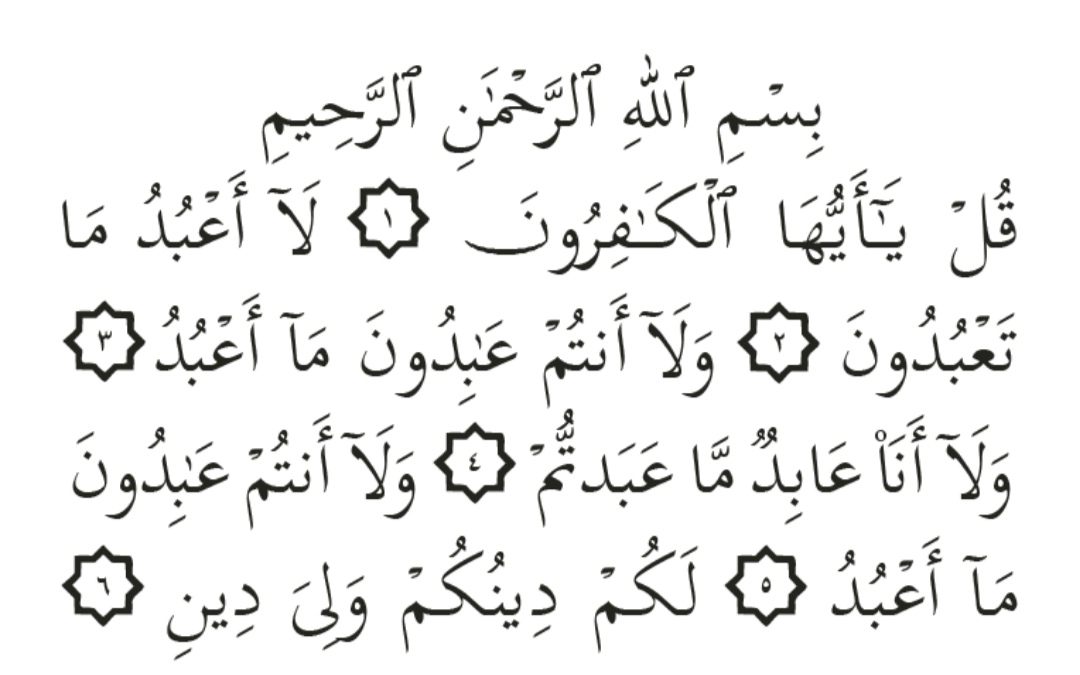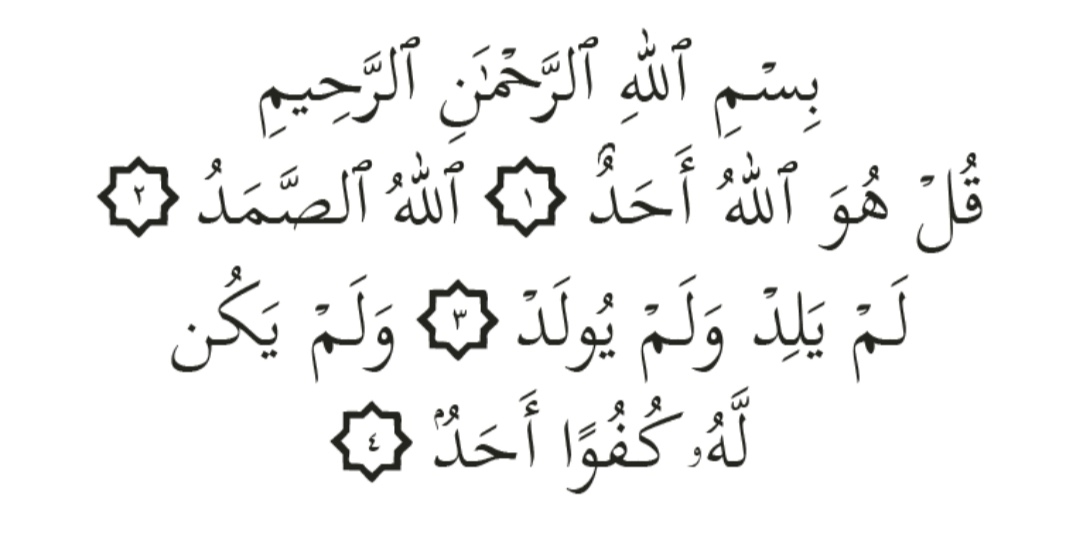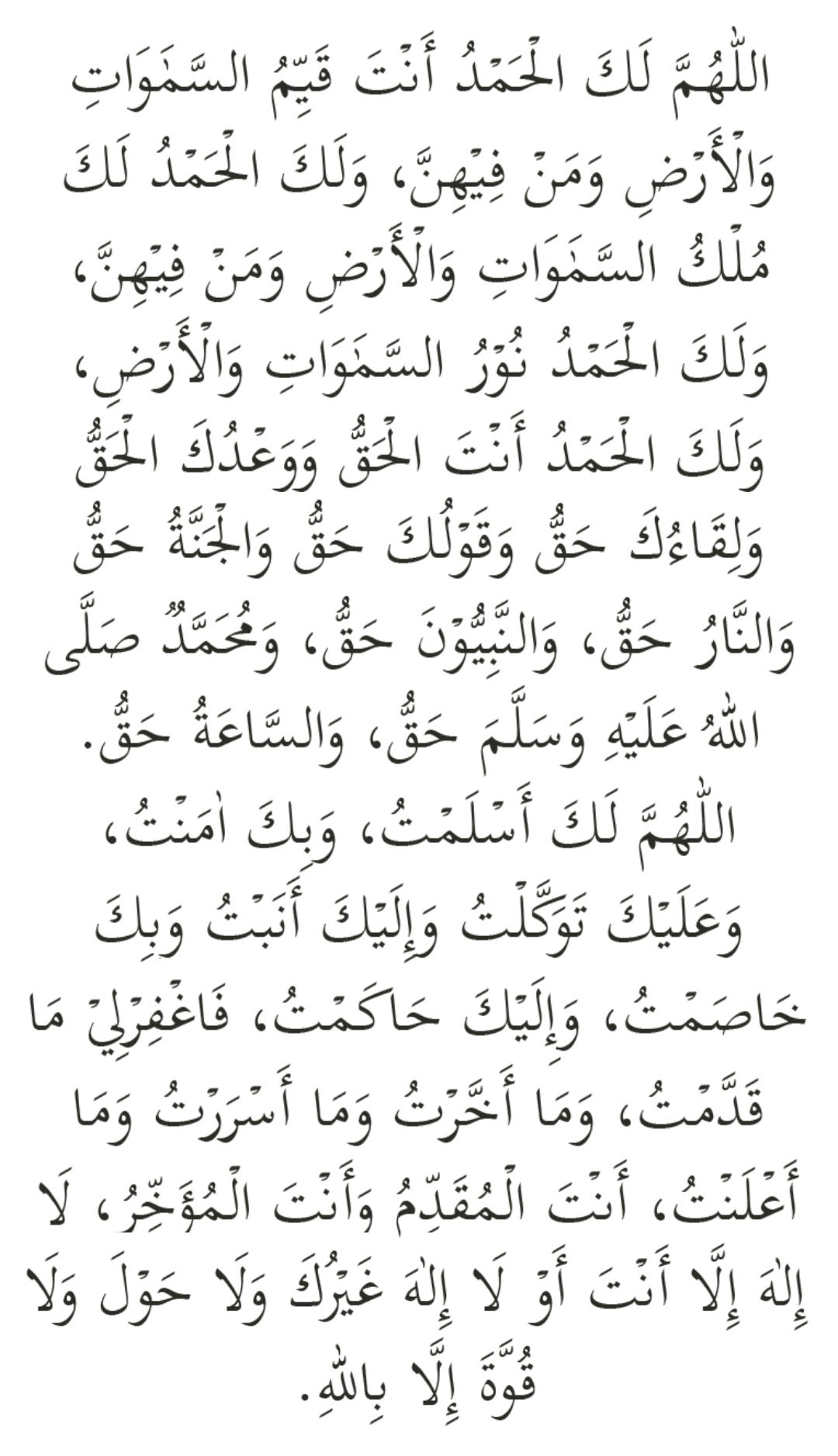
How to perform Tahajjud Prayer?
This is a complete guide to Night Prayer (Tahajjud Prayer). You’ll be guided step-by-step until you are done.
In this guide, you’ll learn about anything related to night prayer, such as:
- How to niyyah (intention)
- Time to perform
- What’s dua to recite
… and lots more.
This prayer guide is also assisted with Audio and English transliteration to help anyone who has difficulty reading Arabic script.
Let’s get started.
Tahajjud Meaning
What is Tahajjud Prayer?
The Tahajjud prayer, or known as “night prayer,” is a special Islamic prayer that is recommended (but not compulsory) for all Muslims.
Tahajjud prayers are encouraged to set up every night.
We perform the obligatory Isha prayer at the beginning of the time and get up in the middle of the night to perform the sunnah tahajjud prayer.
The Tahajjud prayer is sunnah muakkadah – which is highly encouraged.
Rasulullah SAW and his companions never left this prayer for the rest of their lives.
He never left the Tahajjud prayers even for one night until both his legs were swollen because he was standing too much.
He said that means;
The most crucial prayer after the obligatory prayer is the night prayer (tahajjud prayer)”
— H.R Muslim
Tahajjud Time
The tahajjud prayer is performed at midnight, that is, 2/3 of a night.
When waking up at this time, the surrounding is the silent state since other people sleep deep.
Allah SWT says:
O you wrapped ˹in your clothes˺! Stand all night ˹in prayer˺ except a little ˹pray˺ half the night, or a little less, or a little more and recite the Quran ˹properly˺ in a measured way.
— al-Muzzammil verses 1–4
The practice of waking up for worship after sleeping tonight is known as Qiyamullail.
It preferably done together with Istikhara and prayers of repentance (Tawbah Prayer).
Niyyah (Intention) Of Tahajjud Prayer
When waking up after sleeping in the middle of the night, take ablution (wudu).
Next, face the Qibla direction and say the intention of this tahajjud prayer:

Usolli Sunnatat-Tahajjudi Rak’ataini Lilaahi Ta’ala
Meaning:
I pray tahajjud two rak’ahs because of Allah Ta’ala.
How Many Rakats in Tahajjud
There is no specific information regarding tahajjud prayers in detail.
The number of rak’ahs is not limited, but at least two rak’ahs with one salutation (salam) for every two rak’ahs.
Tahajjud prayers can be performed for two, four, six, eight, and twelve rak’ahs – but it can be done as much as possible according to your ability.
But what is more important, somehow it is done in istiqamah (consistent) every night even if it is only done for two rak’ahs.
The implementation of this method of tahajjud prayer is the same as other sunnah prayers.
How To Pray Tahajjud
How to pray Tahajjud?
The method of tahajjud prayer in terms of movement is the same as other prayers.
The surah after Fatiha in this prayer is not determined. Therefore, you can read any surah you like.
Below are the suggested surahs that can be recited.
In the First Rakat
Read surah Al-Fatiha and followed by surah Al-Kafirun

Qul yaa ayyuhal-kafirun. La a’budu maa ta’buduun. Wa la antum ‘Abiduna maa a’bud. Wa laa ana ‘Aabidum maa ‘abattum. Wa laa antum ‘abiduuna maa a’bud. Lakum diinukum wa liya diin.
Meaning:
Say, “O disbelievers, I do not worship what you worship. Nor are you worshippers of what I worship. Nor will I be a worshipper of what you worship. Nor will you be worshippers of what I worship. For you is your religion, and for me is my religion.”
In the Second Rakat
Read surah Al-Fatiha and followed by surah Al-Ikhlas

Qul huwallahu ahad. Allahus-samad. Lam yalid wa lam yuulad. Wa lam yakul lahuu kufuwan ahad.
Meaning:
Say, “He is Allah, [who is] One, Allah, the Eternal Refuge. He neither begets nor is born, Nor is there to Him any equivalent.”
Tahajjud Dua
Rasulullah SAW never left the Tahajjud prayers during his life.
After the prayer, Rasulullah SAW recited the following prayer:

Transliteration
Allahumma laka hamdu anta qoyyimussamawaa ti wal ardhi waman fi hinna, walakal hamdu laka mulkussama waa ti wal ardhi waman fii hinna, walakal hamdu nuu russama wa ti wal ardhi, walakal hamdu antal haqku wa wa’ dukal haqku wa liqo-u-ka haqku wa qauluka haqku wal jannatu haqku wanna ru haqku, wannabi yuu na haqku, Wamuhammadun sallallahu ‘alaihiwasallam haqku, wassa-‘atu haqku
Allahumma laka aslamtu, wabika amantu, wa alaika tawakkaltu wa ilaika anabtu wabika khosomtu, wa ilaika hakamtu, fagfirli maaqaddamtu, wa maa akhortu wa maa asrartu wa maa ‘a lantu, antal muqoddimu wa antal mu-a-khiru, laa ilaha illa anta au laa ilaha ghoiruka wa laa hau la walaa quwwata illa billahi
Meaning:
O Allah, to You, is all praise. You are the enforcer of the heavens and the earth and all that is in them. Praise be to You. You are the King of the heavens and the earth. Glory be to You, the radiant light of Heaven and earth.
Praise be to You, You are true, Your promise is true, Your meeting is true, Your word is real, Heaven is real, Hell is real, the prophets are true, Prophet Muhammad SAW is real, and the Day of Judgment is real.
O Allah, to You I surrender, to You I return, to You I miss, and to You I judge. Forgive me for my mistakes and the previous ones, both what I have hidden and what I have stated.
You are the first God and the last God. There is no God but You. There is no power and strength except with (the power of) Allah.
Tahajjud Benefits
There are many advantages to performing tahajjud prayers.
Among the advantages of tahajjud prayers are the dua quickly answered, peace of mind, an abundance of rizqi, and human betrayal protection.
The most important thing is that at this time, the door of repentance is wide open.
The Prophet (peace and blessings of Allaah be upon him) said:
Do pray at night because it is the habits of the pious before you, a way to get closer to Your God, and the redeemer of all the bad practices, prevention of the practice of sin and can prevent disease.
— Narrated by Tirmidhi and Ahmad R.A
In fact, tahajjud prayers will also make us healthier and more productive.
Prophet Muhammad SAW said that Tahajjud is the honor of a believer because it gives personal time between God and us.
If we believe that we belong to Him, and we will return to Him, then invest some of our spiritual time with tahajjud and see how our strength and productivity will increase!
Benefits of Tahajjud Prayer According to Imam al-Ghazali
- To cleanse our hearts from any hatred of other Muslims.
- To always have the fear in our hearts for God and realize that our lives are very short.
- To understand the benefits of tahajjud.
- To love God and have strong faith when we wake up at night prayers’ calling’ God.
Five of Tahajjud’s Rewards in the World
1) Away From All Diseases
Salman Al-Farisi narrated, Rasulullah SAW once said;
Do pray at night because it is the habits of the pious before you, a way to get closer to Your God, and the redeemer of all the bad practices, prevention of the practice of sin and can prevent disease.
— – Narrated by Tirmidhi and Ahmad R.A
2) Given the Effect of Taqwa on the Face
Have you ever seen the faces of worshipers who practice night prayers?
Doesn’t their face look radiant and calm?
That is the proof of the grace that God gave him.
Not only that, by looking at their faces alone, we feel quite happy and fun, even feel like seeing it many times.
3) Beloved By All Mankind
Those who practice prayer night is sure to be loved by everyone, especially by God.
Such characteristics of a person who believes and does good deeds with Allah will surely get love from anyone.
4) Conversation And His deeds Contains Hikmah (Wisdom)
Indeed, the characteristics of those who believe are those who maintain the manners and speech of their words.
This group certainly does not talk about neglect, but each of their words is useful and wise.
Similarly, in the deeds and actions of those who always try to stay away from neglected and race to do good that draws closer to Allah SWT.
5) Endowed with Strength and Sustenance (Halal and Blessed)
By performing every act of worship to Allah SWT, no matter what his worship will indeed be fulfilled abundant sustenance, such as good food, health, happy family and so on.
In fact, every sustenance (rizq) will be blessed by Allah SWT.
Conclusions: Allah Opens the Doors of Heaven to His Servants
The night prayer is a golden opportunity offered to human beings to strengthen our relationship with God.
At one-third of the night, the door of Heaven opened wide to receive the repentance of His servants.
Adversity is felt only by those who rarely or never do it, but for those who are ordinary, it becomes a pleasure anyway.
Those who can appreciate it will feel a significant loss if left behind from performing the prayers.
I hope this guide is helpful to you.
All the shortcomings in this guide will be corrected from time to time.
If you have any questions, please let me know in the comments section below.

Tinggalkan Komen Anda..
Salam Alaikum. Is it true that when praying tahajjud i have to recite the dua (SUBHANA RABBIYAL AZEEM) during ruku 33x and (SUBHANA RABBIYAL ALA) during sujjud 34x?
What about nawafil of isha which we’ve to pray after witr..? So in case of praying witr after tahjud we have to pray that 2 nawafil in the end of salah or not..? Like tahjud + witr + that 2 nawafil
In the Shafi’i school of thought, it is preferred to perform the Witr prayer at the end of all the night prayers, including Tahajjud. Therefore, if someone chooses to perform the Witr prayer after Tahajjud, it is recommended to perform any other optional (nawafil) prayers before Witr, not after it.
Regarding the optional (nawafil) prayers after Isha, these are typically performed before the Witr prayer. So, if you are performing Tahajjud and then Witr, there is no need to perform these nawafil prayers after Witr. This is because the Witr prayer is considered the conclusion of all the night prayers.
In summary, the suggested sequence in the Shafi’i school is to perform the Isha prayer, followed by the optional nawafil prayers, then Tahajjud if desired, and finally conclude with the Witr prayer.
Wallahu a’lam
This does not mention witr?
Regarding Witr prayer, it is usually performed after the Tahajjud prayer. The Witr prayer is an odd-numbered rak’ah, generally prayed as a single rak’ah or in a set of three rak’ahs.
If you pray Tahajjud in sets of two rak’ahs and then intend to conclude your night prayers with Witr, you would perform the Witr after completing your Tahajjud rak’ahs.
The Witr is considered the last prayer of the night, so it is performed after completing the Tahajjud prayer.
I was so impressed when I found out how Most humble Allah is (I never heard any other god do is) that He descends to the 7th heaven and ask daily in the 2/3rd of the night who is that who wants His help? (This point is not mentioned in your article) Instead of our doa/requests traveling all the way to Him, here is Allah who comes down instead to receive it. When I learnt this, I began daily tahajud also because the communication is one-to-one basis. I used to wake up fresh in the middle of the night since my teens but didn’t realize Allah was calling me but now I wake up as if to meet a superstar.
Salam Alaikum, my name is Hafiz from Nigeria. Read through your articles and the duas. Very basic and easy to understand. However I don’t really know when the last third of the night is . Could It be from 4am till fajr time or 3. I’d appreciate if I hear from you. Jazak Allahu khayran
7pm-7am=12hrs/3*2=3am till fajr but I tend to wake up at 4am. A surgeon once told me most very weak in-patients where he works pass away around 4am so if one can wake up at that time, that is good. Robbers too know 4am is the best time to enter homes as most are in deep sleep.
Thank you kind sir, you really got me in the part where you said how robbers enters peoples home to steal at 4am 😂😸. Shukran
Wa Alaikum Salam Hafiz,
To determine the last third of the night, which is a significant time for prayers such as Tahajjud, you need to calculate the time between sunset and the break of dawn (Fajr), and then divide this time into three equal parts. The last part of this division is considered the last third of the night.
For example, if sunset (Maghrib) is at 7 PM and the break of dawn (Fajr) is at 4 AM, the duration of the night is 9 hours. Dividing this into three equal parts, each part would be 3 hours. Therefore, the last third of the night would begin 3 hours before Fajr, i.e., from 1 AM in this example.
It’s important to note that the specific timing of the last third of the night will change throughout the year as the times of sunset and dawn change. In your location, the time for Maghrib and Fajr will vary, so it’s important to calculate based on your local prayer times.
The significance of the last third of the night is emphasized in Islamic teachings as a time when Allah descends to the lowest heaven and is especially receptive to prayers and supplications.
For more detailed calculations based on your local prayer times, you may want to use an Islamic prayer time calculator or consult your local mosque for precise timings.
Walaikum Assalam, 8 tahajjud, and 3 witr are equal to the 11 you are referring to.
Wa Alaikum Salam warahmatullah wabarakatuh,
For Tahajjud prayer, it is recommended to pray in sets of two rak’ahs. If you’re planning to pray 11 rak’ahs in total, you would typically pray eight rak’ahs in sets of two, followed by three rak’ahs of Witr prayer at the end.
The Witr prayer is the odd-numbered prayer that should be the last prayer of the night.
So, if you pray Witr after Tahajjud, it’s advisable not to pray additional rak’ahs of Tahajjud after the Witr prayer.
sallam, are you supposed to call the prayer (iqama) or do you just say Allahu akbar and start with surah al-fatiha when praying tahajjud?
wsalam, im not sure but the way i do it is to have the intention to pray 2 rakkah tahajjud and recite the niyyah mentioned above.
Wa Alaikum Salam,
When praying Tahajjud at home, it is not necessary to call the Iqama. You can simply start your prayer by saying “Allahu Akbar” and then proceed with Surah Al-Fatiha. The Iqama is generally called in a congregational setting in a mosque for obligatory prayers. For voluntary prayers like Tahajjud, especially when praying alone, you can begin directly with the Takbir (Allahu Akbar) and then continue with your prayer.
Salaam Alaikum,
May Allah grant us knowledge to perform deeds as they should be done.
Kindly note that we do not have to recite a Niyyah, it is something that we make an intention to. Nothing needs to be said.
And no dua are specific, however do ensure everything is in accordance to sunnah as the deeds that are perfected are loved by Allah the most high.
Jazakumullah khairan
Wa Alaikum Salaam,
Indeed, in Islam, the intention (Niyyah) for performing any deed, including prayers, is made in the heart and does not require verbal expression. This intention is a fundamental aspect of worship, reflecting the sincerity and purposefulness of one’s actions. Additionally, while there are no specific du’as mandated for every occasion, adhering to the Sunnah – the practices of the Prophet Muhammad – is highly recommended to ensure that actions align with Islamic teachings. May Allah grant us all the understanding and ability to perform deeds according to the Sunnah and gain His pleasure. Jazakumullah khairan.
As Salaam Alaykum,
When reading the 1st rakat of Tahajjud before Surat Al Fatiha do we recite Subhanaka allahumma.
Wa Alaikum Salaam,
In the first rak’ah of Tahajjud, it is customary to recite the opening supplication (du’a) “Subhanaka Allahumma” before Surah Al-Fatiha. This practice is based on the Sunnah of the Prophet Muhammad, who often began his prayers with such an invocation.
However, it’s important to note that while this is a recommended practice, it is not obligatory. Each individual may choose to include this supplication based on their understanding and adherence to the Sunnah.
Salam, I can’t get this answer: am I supposed to pray salam+tasleem every 2 rakats or only at the end of the 8 rakats?
wa alykumus salam warahmatullah dear sister Maria. It is the sunnah /tradition to perform night prayers in sets of two rakats with salam. Baarakillaah feek.
Wa Alaikum Salaam,
When praying Tahajjud, it is the Sunnah to perform the prayer in sets of two rak’ahs with Salam and Tasleem at the end of each set. So, if you are praying 8 rak’ahs, you would complete each pair of rak’ahs with Salam and Tasleem before starting the next set.
This means you would do Salam and Tasleem after the 2nd, 4th, 6th, and 8th rak’ahs. This practice follows the example of the Prophet Muhammad, who used to pray voluntary prayers, including Tahajjud, in two-rak’ah units.
this is so helpful, may allah bless you always!
Amin, and may Allah bless you too!
I’m glad I could assist you. If you have any more questions or need further guidance, feel free to ask.
Your dedication to understanding and following your faith is truly commendable.
Assalam Alaykum do i say adkari after a sunna prayer like astaghfirullahx3 Allahumah antasalaam….